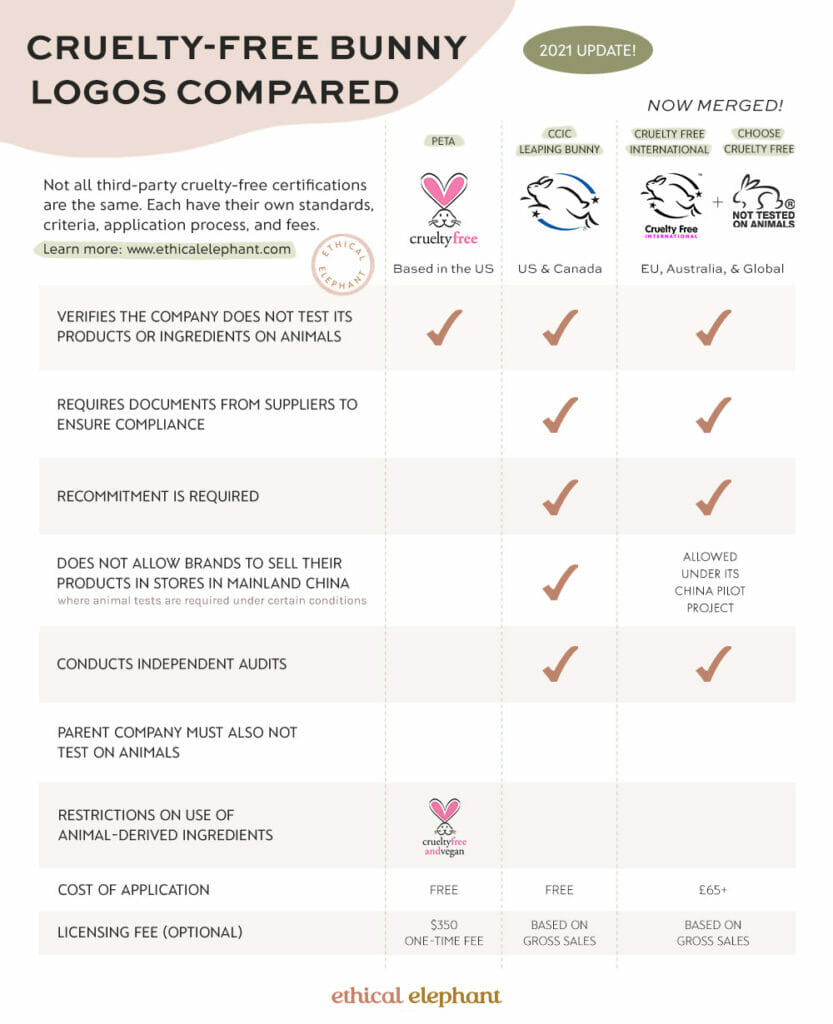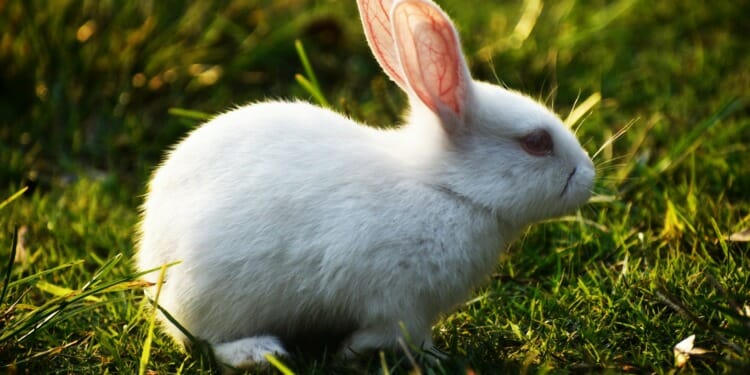No doubt you have seen more cruelty-free or vegan labels on some of your favorite products. As more and more brands become conscious of increasing consumer demands for ethical products, some companies have made their products more sustainable, but also have turned away from requiring animals in their production. While these labels are becoming increasingly common, it is hard to know exactly what they mean. Are these labels legit, or is it just an animal version of greenwashing?
What does cruelty-free mean?
Cruelty-free refers usually to the animal testing phase of a particular product. Most products used to be tested on animals before making it to market, and some countries, like China required all imported products to be tested until around 2021. So even if companies were “cruelty-free” in the country where they were manufactured, they had to pay for their products to be tested on animals if they wanted to sell in China.
This does not mean that all products are exempt from animal testing, there are still products classified as “special cosmetics.” These cosmetics are marketed as functional, like sunscreen, hair dyes, and whitening products. General cosmetics are items like haircare, skincare, and lotions. Just because companies are exempt from animal testing, they still need to provide certain documents that verify their products are safe for human use.
There are three major cruelty-free labels:
Each of these organizations has their own criteria by which they certify products. There is also an increasing number of fake cruelty-free and vegan labels that are popping up to mislead consumers and sell more products.

This chart from the Ethical Elephant, an ethical consumer guide, shows the differences between the labels.
There are some products that claim to be cruelty-free when in reality, while the finished product was not tested on animals, the ingredients could have been tested on animals earlier in the manufacturing process.
Additionally, companies that still had animal testing done in China still claimed to be cruelty-free despite the fact that their products were being tested on animals when they were imported to China. This is a bit more of a grey area since the animal testing was no sought out by the brand. However, if the brand was really committed to being cruelty-free, they could have simply not sold their products in China. This was the case with L’Oreal cosmetics, which marketed itself as cruelty-free but did sell to China when imported items had to be tested on animals
Vegan Labels
Vegan.org, and Vegan Society UK. Vegan.org has high standards, and the products they test must be both vegan and cruelty-free (they don’t certify products that have tested ingredients or the final product on animals). Products must not contain animal parts or animal products. This includes honey bee products or other products from insects like silks or dyes. For the full list of requirements, check out their rigorous standards online.
Vegan.org is a company that has been around since 1995 and is primarily dedicated to certifying brands and products. They have an extensive catalogue of products they have verified and don’t verify brands, but individual products. They also did not certify products that were to be sold in China when China required animal testing. They also require that no animal testing occur after the year 2000 in order to qualify.
Many brands will still claim that their products don’t contain animal products, but still use beeswax or honey, or they will use fake logos.
Additionally, the rigor of the standards only matter to the extent that the company is honest with the certifier. This is why its important that a third party is doing its own investigating into the brand or product. Asking a person who works at the company instead of seeking out information on their own only gives the certification as much integrity as the employee who submitted the information for the certification. In other words, if a company lies about the ingredients or testing of a product, they still might get a certification.
For a deeper understanding of labels and product claims like “no animal ingredients” or “100% vegetarian) check out this article, from the Ethical Elephant, it will help you spot fake labels and understand what the drawbacks of each label are.
Ultimately, a lot of companies mislead consumers by adding cruelty-free or vegan labels to products, or marketing themselves as a vegan, cruelty-free brand when they are not. Since there is not any international committee that legally enforces the use of these labels, they can easily be misused.
This would indicate that using labels like this leaves consumers vulnerable to these companies that mislead them. Companies misleading consumers about the involvement of animals in their products is comparable to the way that companies greenwash their products to make consumers think they are buying products that are better for the environment.
If you can, it would be important to do your own research (you can start by checking out this article to compare labels) on what the labels on your favorite products mean. Learning more will also help you make more informed choices next time you go shopping.
But the responsibility falls on brands more than on consumers. It is important that these labels maintain their integrity and set good standards for the rest of the industry. Many sustainable brands are moving toward vegan and cruelty-free products, and as consumer demand for these products increases these labels will become more common. Once companies start taking these labels seriously and there are third-party international legal certification programs that follow rigid guidelines, consumers can actually make informed choices about the products they are buying.
As helpful as it is to know more about labels and to understand the differences between them, consumers will always be at a disadvantage and never have all the information until there is more transparency from the brands themselves. The certification through Vegan.org seems promising, and hopefully will encourage more widespread certifications with rigid standards.
Editor’s Note: The opinions expressed here by Impakter.com columnists are their own, not those of Impakter.com. — In the Featured Photo: White rabbit on grass. Featured Photo Credit: Mehedi Hasan from Pexels










